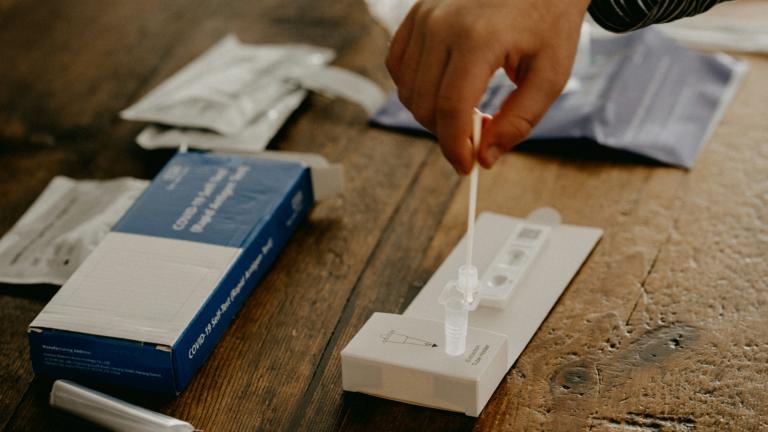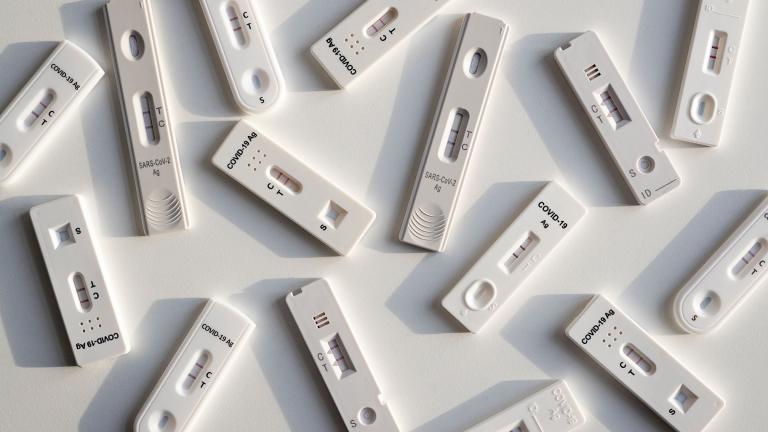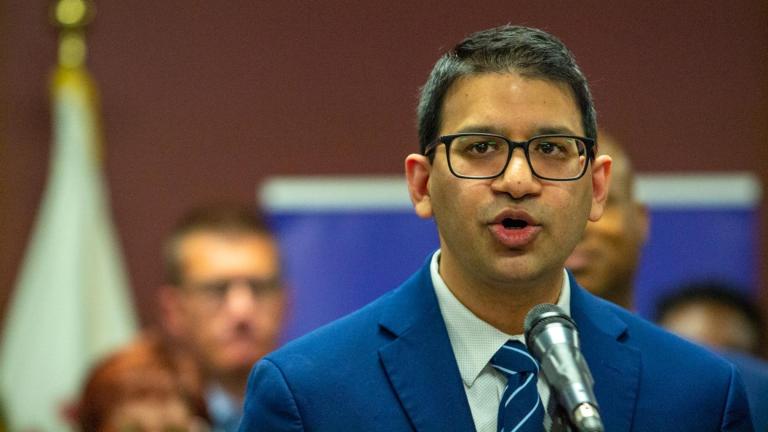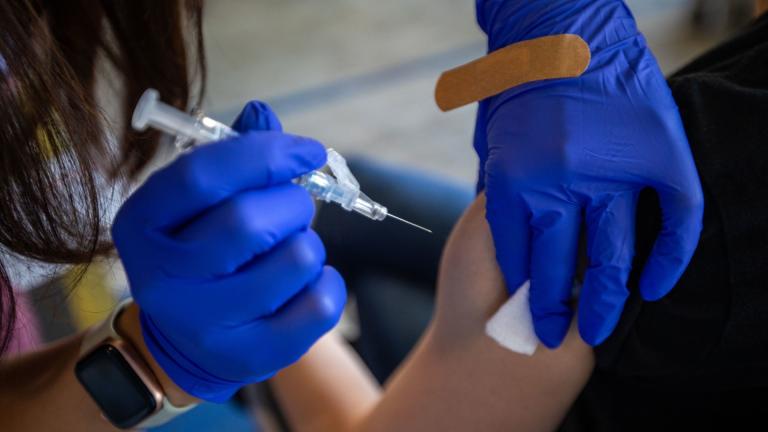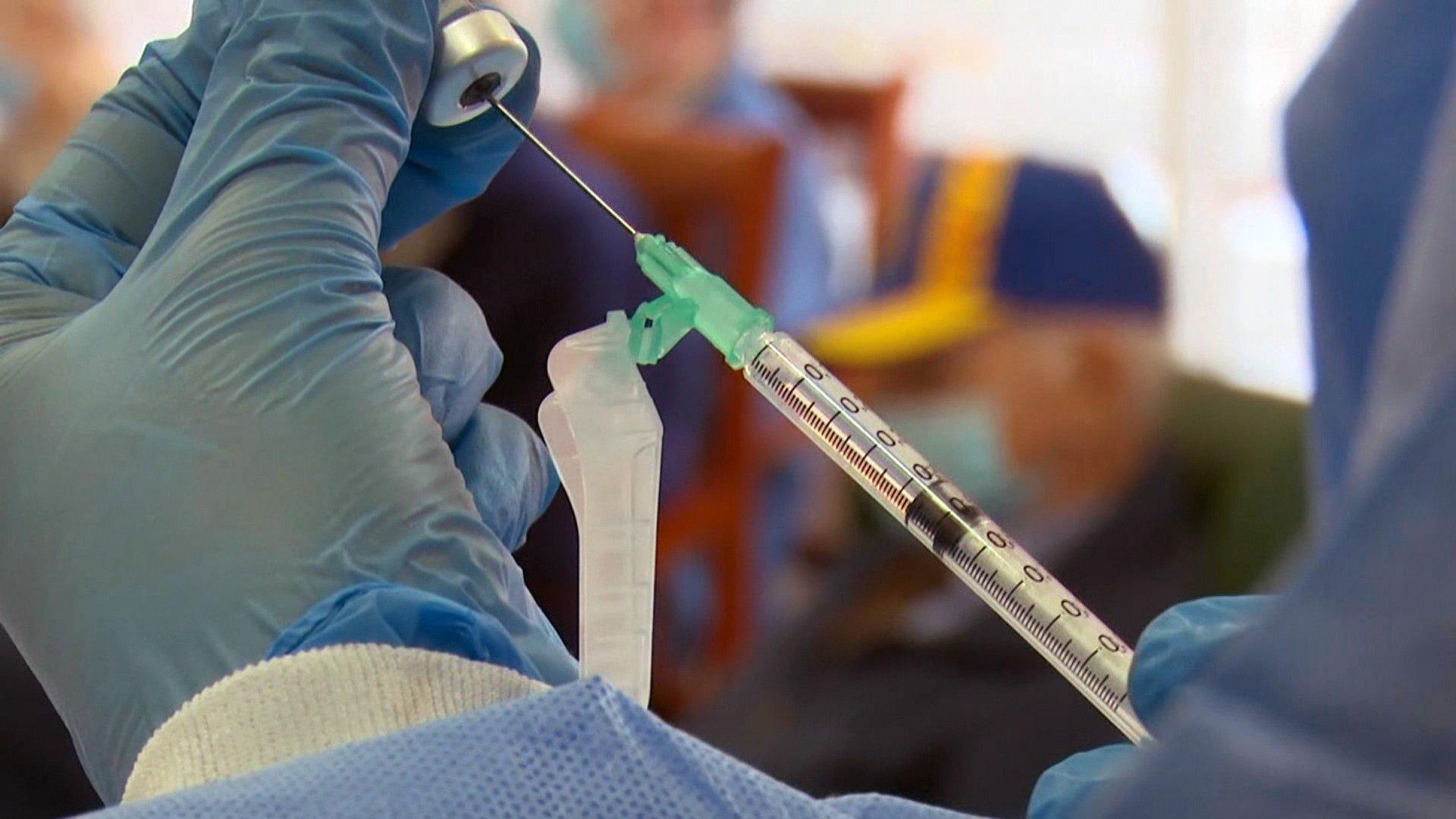 (WTTW News)
(WTTW News)
Can COVID-19 vaccines cause heart inflammation?
The Centers for Disease Control and Prevention is investigating a small number of reports that adolescents and young adults who received an mRNA vaccine – either the Pfizer or Moderna shot – experienced myocarditis, or inflammation of the heart muscle.
“Right now, these cases are very, very small in number, so it’s important to remember we’ve had several million adolescents and young adults – millions who have received vaccine,” Dr. Ravi Jhaveri, head of infectious diseases at Ann & Robert H. Lurie Children’s Hospital of Chicago, said Wednesday during a Facebook Live event. “We’re not talking hundreds or thousands of cases.”
According to the CDC’s vaccine safety group, there have been “relatively few” reports of myocarditis associated with vaccination, and those were predominantly in adolescents and young adults within four days of receiving their second vaccine dose. Males reported cases more often than females.
“The real question and what public health authorities are trying to determine is how this relates if at all to the vaccine. It’s not clear it’s related,” said Jhaveri.
Myocarditis is rare, can occur at any age and is typically caused by a viral illness, according to Dr. Michael Carr, a cardiologist at Lurie Children’s Hospital.
“We typically see 10-12 cases a year that get hospitalized. The vast majority of those have mild symptoms and recover fully from it,” Carr said. “We do get occasional kids who are quite sick from it. If you Google myocarditis, oftentimes (you’ll see) descriptions of kids who are very sick from it. That is the exception, not the rule.”
Symptoms of myocarditis include chest pain, rapid or abnormal heart rhythms, shortness of breath and fatigue. There is no specific treatment for the condition, but clinicians advise resting and taking non-steroidal anti-inflammatory drugs (NSAIDs) to decrease inflammation and improve symptoms like chest pain, according to Carr.
Both Carr and Jhaveri encourage parents to vaccinate their children when they become eligible and have taken steps to vaccinate their own. (One of Jhaveri’s children has been fully vaccinated and his younger son is slated to get vaccinated this week, while Carr plans to get his 11-year-old twins vaccinated when they turn 12 next month.)
The Pfizer vaccine has been approved for children ages 12 and up. Moderna says it plans to request authorization for its vaccine for kids 12 and up as soon as next month.
“Despite the perception and certainly, the truth really, that kids get severely sick less frequently (from COVID-19), the reality is it still happens. And the toll that it takes not only on those kids but on their families is significant,” Jhaveri said. “Vaccine that’s out there can completely prevent severe illness, hospitalization and deaths. There’s a tangible way families can protect their children, and we strongly recommend it and the benefits far outweigh the potential risks.”
Vaccinating children will also be key to achieving herd immunity and returning a sense of normalcy to children’s lives.
“I think (children) have struggled with online learning, remote and distance learning and the idea that vaccination opens doors to in-person school and all the physical and mental health benefits that come with that that to me is just important as protection against (COVID-19),” Jhaveri said.
Contact Kristen Thometz: @kristenthometz | (773) 509-5452 | [email protected]



